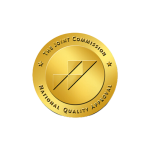What You'll Learn:
- Addressing the complex relationship between drug use and personality traits, specifically narcissism.
- Examining the developmental origins of narcissism.
- Offering insights into behavioral patterns and effective treatment strategies.
The relationship between substance use and personality disorders such as narcissism is intricate and nuanced. Narcissism—marked by an inflated sense of self-importance and lack of empathy—can intensify or manifest through substance use behaviors. This article explores whether drug use can directly foster narcissistic traits and how these conditions may interact in individuals' lives.
Can Drugs Cause Narcissism?
Are Drug Addicts Narcissistic?
This requires differentiating between addiction-induced narcissistic behaviors and true narcissistic personality disorder. Individuals struggling with addiction might display behaviors that appear narcissistic, such as manipulative actions or a singular focus on their needs at the expense of others. These behaviors are typically driven by the physiological and psychological demands of addiction rather than by intrinsic narcissism.
What Can Cause Narcissism?
It's often a blend of biopsychosocial factors including genetic predisposition, early childhood experiences, and environmental influences. Developmental psychologists suggest that narcissistic traits can arise from inconsistent parenting styles—either excessive pampering or harsh criticism—that lead to an unstable self-image and affect emotional regulation and empathy.
Why Does Narcissism Develop?
It's essential to look at the protective functions this trait might serve. For some, narcissistic behaviors are a defense against feelings of inadequacy or vulnerability. These behaviors reinforce over time, especially when they bring social success, further entrenching narcissistic tendencies.
Are Narcissists Prone to Addiction?
It's important to consider the personality characteristics that might make one vulnerable to substance abuse. Narcissists often seek out experiences that affirm their sense of superiority and control, which can include the use of substances. Drugs may be appealing as they can temporarily alleviate feelings of emptiness or low self-esteem and can provide a false sense of confidence and power.
Understanding Treatment and Recovery
Addressing both narcissism and addiction requires a nuanced approach that considers the interplay between these issues. Treatment might include psychotherapy techniques such as cognitive-behavioral therapy (CBT) to address underlying thought patterns and behaviors, or dialectical behavior therapy (DBT) to improve emotional regulation and interpersonal effectiveness. Joining a recovery program that builds self-esteem and empathy can be vital for individuals with both narcissism and addiction.
Managing addiction and narcissistic behaviors is challenging but achievable with effective support and treatment strategies. If you or a loved one is struggling with these issues, American Recovery is here to help. Our team of experts provides comprehensive care tailored to address the unique needs of each individual. Reach out to us at 866-484-2502 to learn more about how our programs can support a journey toward recovery and healthier relationships. Embark on a path to recovery that not only addresses substance use but also fosters personal growth and development.


